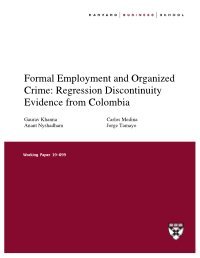By Thomas D. Akoensi, Justice Tankebe
Using an experimental vignette design, the study investigates the effects of criminal records on the hiring decisions of a convenience sample of 221 human resource (HR) managers in Ghana. The HR managers were randomly assigned to read one of four vignettes depicting job seekers of different genders and criminal records: male with and without criminal record, female with and without criminal record. The evidence shows that a criminal record reduces employment opportunities for female offenders but not for their male counterparts. Additionally, HR managers are willing to offer interviews to job applicants, irrespective of their criminal records, if they expect other managers to hire ex-convicts. The implications of these findings are discussed.
The Howard Journal of Crime and Justice, Volume 63, Issue 3, Pages: 272-285 | Oct.2024



